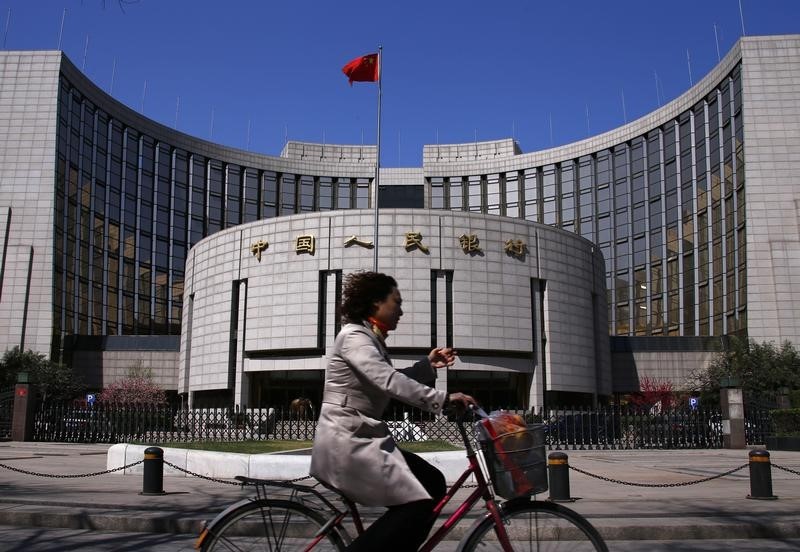BEIJING (Reuters) - China cranked up its fiscal spending by 26 percent in August from a year earlier as Beijing tries to re-energise flagging economic growth and convince reluctant local officials to spend.
August data over the past week suggested the world's second-largest economy lost further momentum over the summer, adding pressure on policymakers to ramp up what is already their biggest stimulus campaign since the global financial crisis.
The spending increase to 1.28 trillion yuan (130.26 billion pounds) last month was the biggest percentage rise in central and local government fiscal expenditure since April, when it leapt 33 percent, data from the Ministry of Finance showed on Tuesday.
For the first eight months of the year, fiscal expenditure rose 14.8 percent over 10 trillion yuan ($1.57 trillion) compared with the same period last year.
Still, some economists say the government's full-year economic growth target of 7.0 percent is now at risk, while others fear real growth is already much weaker than official data suggest.
With traditional monetary policy responses such as interest rate cuts having less impact in reviving economic activity than in the past, China is trying to increase fiscal stimulus to both shore up short-term growth and fend off growing deflationary pressures.
"Given China's top policymakers have given green light to re-leverage the economy on the back of supportive fiscal policy and easing monetary policy, we expect China's fixed asset investment growth to find a bottom soon," economists at OCBC wrote in a note.
Spending on education rose 15.8 percent in Jan-Aug from a year earlier; healthcare 19.5 percent; and energy conversion and clean technology 22.7 percent. Outlays on social security and employment rose 21.7 percent.
However, China's clunky budget process, and at times strained relationships with local government, appear to be still complicating the transmission process in terms of turning spending plans into actual activity.
Angry Chinese authorities have seized up to 1 trillion yuan ($157 billion) from local governments who failed to use their budget allocations, Reuters reported on Monday, quoting sources.
The huge underspend, linked to officials' reluctance to splash out on big-ticket projects while authorities crack down on corruption, supports the argument of some economists that Chinese state investment has grown too slowly this year.
SLOWER INCOME GROWTH
The cooling economy is also beginning to squeeze government finances. Fiscal revenues rose 6.2 percent in August from a year earlier, half the 12.5 percent pace seen in July.
Income taxes collected from companies dropped 15.4 percent in August, while contributions from the value added tax on imported goods and consumption taxes fell 16 percent.
"The growth of fiscal revenue still faces relatively big pressure in coming months," the ministry said on their website.
Sluggish domestic and global demand, a wobbly housing market and cooling investment are expected to drag China's official growth rate to the lowest in a quarter of a century this year.
A near 40 percent drop in China's stock market in the summer and a shock near-2 percent devaluation in the yuan
In another sign China is prepared to crank up fiscal stimulus, the powerful economic planner, the National Development and Reform Commission (NDRC), held an internal teleconference on Monday to discuss the ways to stabilise investment growth.

(Story refiles to add dropped word "spending" in headline)